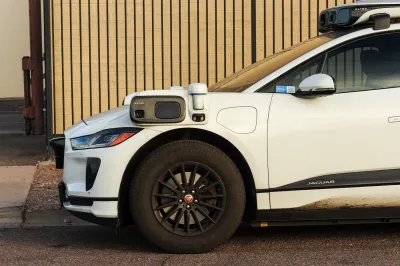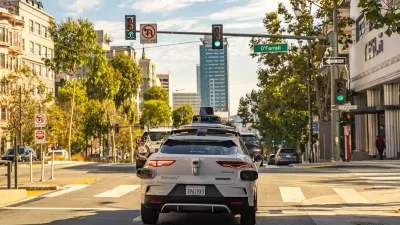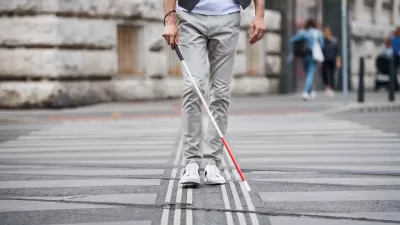The agency is reducing reporting requirements for autonomous vehicles and cars with self-driving features, prompting concern among safety advocates who say transparency is essential to the safe deployment of AV technology.

The U.S. Department of Transportation announced it is rolling back regulations on self-driving vehicles. According to an article by Aarian Marshall in Wired, carmarkers will no longer have to provide detailed reports of crashes to government agencies.
“But the new rules will limit the information available to those who watchdog and study autonomous vehicles and driver assistance features—tech developments that are deeply entwined with public safety but which companies often shield from public view because they involve proprietary systems that companies spend billions to develop,” Marshall explains.
Now, automakers will not be required to report crashes that include property damage under $1,000 in value or that do not result in “fatalities, hospitalizations, air bag deployments, or a strike on a ‘vulnerable road user,’ like a pedestrian or cyclist.”
Road safety advocates worry the changes will lead to significant underreporting of crashes. “The new DOT framework will also allow automakers to test self-driving technology with more vehicles that don’t meet all federal safety standards under a new exemption process.” The process, which is currently available to foreign vehicles, can let carmakers bypass typical safety features that can be replaced by computers.
FULL STORY: In a Boon for Tesla, Feds Weaken Rules for Reporting on Self-Driving

Trump Administration Could Effectively End Housing Voucher Program
Federal officials are eyeing major cuts to the Section 8 program that helps millions of low-income households pay rent.

Planetizen Federal Action Tracker
A weekly monitor of how Trump’s orders and actions are impacting planners and planning in America.

Ken Jennings Launches Transit Web Series
The Jeopardy champ wants you to ride public transit.

Washington Legislature Passes Rent Increase Cap
A bill that caps rent increases at 7 percent plus inflation is headed to the governor’s desk.

From Planning to Action: How LA County Is Rethinking Climate Resilience
Chief Sustainability Officer Rita Kampalath outlines the County’s shift from planning to implementation in its climate resilience efforts, emphasizing cross-departmental coordination, updated recovery strategies, and the need for flexible funding.

New Mexico Aging Department Commits to Helping Seniors Age ‘In Place’ and ‘Autonomously’ in New Draft Plan
As New Mexico’s population of seniors continues to grow, the state’s aging department is proposing expanded initiatives to help seniors maintain their autonomy while also supporting family caregivers.
Urban Design for Planners 1: Software Tools
This six-course series explores essential urban design concepts using open source software and equips planners with the tools they need to participate fully in the urban design process.
Planning for Universal Design
Learn the tools for implementing Universal Design in planning regulations.
Heyer Gruel & Associates PA
Ada County Highway District
Institute for Housing and Urban Development Studies (IHS)
City of Grandview
Harvard GSD Executive Education
Toledo-Lucas County Plan Commissions
Salt Lake City
NYU Wagner Graduate School of Public Service





























